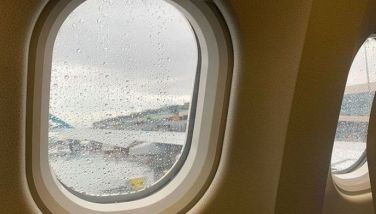Raisers want standard buying price for live hogs
MANILA, Philippines — Batangas hog raisers are appealing to the Department of Agriculture (DA) to set a standard buying price for liveweight hogs as the second largest producer in the country is already bearing the brunt even if the province remains to be free from African swine fever (ASF).
Joseph Magnaye of the Batangas Hog Raiser’s Association said the DA should impose a buying price of at least P110 per kilogram as current prices have plummeted to as low as P75 per kilo.
This means that a normal 100-kilo pig can only be sold at P7,000 per head compared to the average P11,000 per head before the ASF hit the country last month. A raiser invests a capital of about P9,000 per pig.
“We have so much supply, but the traders and the middlemen are taking advantage and they are buying at very low prices. Plus, slaughterhouses are no longer operating 24 hours, some are just until 2 p.m. so not all pigs are being bought,” Magnaye told The STAR.
“Plus the demand has also weakened because the mindset of most people is that it is not safe to eat pork. The P110 per kilo is fair and just,” he said.
Next to Bulacan, Batangas is the next biggest hog producer in the country. Bulacan was among the first areas to be hit by ASF last month.
While Batangas remains ASF-free, the province is just next to Cavite which is the latest victim of the dreaded hog disease.
“The DA is not working to address the prices. They have so many people, but they are not doing anything to monitor our situation, and most of all the prices,” Magnaye said.
Ria Guido, a hog raiser from Calaca in Batangas and a member of the association, echoed the same sentiment saying the buying price should be adjustable given movements in the market.
“We are already losing a lot with all the feeds, plus electricity and water for the pigs. Our expenses are growing each day and yet we cannot sell them at the right price,” Guido told The STAR.
The lockdown imposed by the province of Cavite due to cases of ASF significantly affected the market in Batangas as 72 percent of hog supply goes to neighboring Cavite. The rest goes to Manila and Laguna.
“With their lockdown, we don’t know where to bring our pigs. This is also worse because the consuming public no longer wants to eat pork,” Guido said.
“It’s like we already have the ASF even if we don’t actually have it in our area because of what is happening. No one is buying and no one is eating,” she said.
Guido shared with The STAR her conversation with a specific hauler who wanted to buy her pigs for as low as P70 per kilo. The hauler argued that there are less and less viajeros going to Cavite.
Guido negotiated up to P80 per kilo, but the hauler did not budge. The raiser was forced to sell her 25 heads of pigs at a loss so as not to incur further expense.
She lost P100,000 of what could have been a potential revenue for her in just a single transaction.
Guido said she had no choice but to sell her pigs because letting the pigs just grow would no longer be profitable in the end. Once a pig reaches 120 to 130 kilos in weight, it would already be full of fat and would just end up being culled.
- Latest
- Trending


























